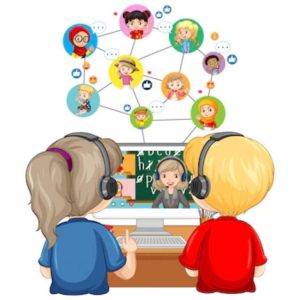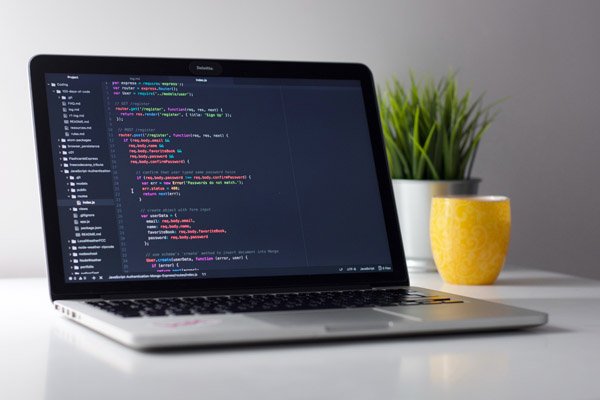Engineers and scientists use computers’ high-speed computing capabilities to resolve complicated research and design challenges. Many technical achievements, such as landing on the moon, would not have been feasible without the computer. In this post, we discussed all of the main characteristics of computers and how they help us with our work. Also, read the characteristics of computer in Hindi.
Many industrial and corporate processes have been automated thanks to computers. They are widely used in the manufacturing and processing sectors, electricity distribution networks; airplane; and financial systems, among other places. Large industrial enterprises are increasingly adopting computer-aided design (CAD) and computer-aided manufacturing (CAM).
What Is A Computer System?
A computer is a smart and powerful machine that can do a variety of activities in seconds. It operates in a cycle known as the input-process-output cycle. The computer is fed raw facts known as “data.” They are encoded so that the computer can interpret them. The computer then analyzes the input with the assistance of specific instructions and generates a meaningful and desirable result, known as “information.” Processing is simply the processing of data to meet the demands of the user.
What are the Characteristics of Computer System
The computer is important in many ways. A tough and time-consuming activity, for example, can be completed quickly and easily. Every individual, organization, business, government, and institution may benefit from a more efficient and effective manner of managing a large quantity of information thanks to the computer. The value of a computer is based on its ability to do tasks quickly and precisely. The computer may aid in manufacturing higher-quality items, training, and reducing human error.
3 Characteristics of Computer System

- Numerical Problem Solving
The solution of complex numerical problems is one of the most difficult and significant tasks performed by computers. Computers can solve certain problems incredibly quickly. The computer can solve numerical problems ranging from simple to complex.
- Information Storage And Retrieval
People utilize computers to store vast amounts of data. A database is a collection of information saved on a computer. The database can be massive. A country’s whole census, for example, might be contained in a single database. A computer can search a massive database for specific information. Furthermore, the information may be readily and quickly modified. Computers’ ability to store and retrieve information efficiently makes them useful in a variety of situations.
- Documents And Image Creation And Presentation
Computers can store a large number of words in a form that allows them to be easily manipulated. As a result, word processing is one of the most significant and widely used applications of a computer. Computers are also used in the publishing industry. Most novels and magazines, for example, are typed on a computer. The use of a computer to create images is known as graphics.
Read also: Block diagram of computer system
What Are the Different Types of Computer Systems
Computer systems come in a wide variety of types and sizes. They range from small, single–user systems to large, multi–user systems that can serve hundreds or thousands of users.
The two main categories of computer systems are personal computers and enterprise systems.
Personal Computers:
Personal computers (PCs) are designed for individual use. They are typically used for tasks such as word processing, web browsing, and gaming. PCs usually include a monitor, keyboard, mouse, and system unit. Some PCs are also equipped with additional peripherals such as a printer, scanner, or external storage device.
Laptop Computers:
Laptop computers are portable versions of PCs. They are generally smaller and lighter than traditional PCs and have the same basic components. They may also include additional features such as a touchscreen, a built-in camera, or extended battery life.
Tablet Computers:
Tablet computers are smaller and lighter than both PCs and laptops. They typically come with a touchscreen interface, and many feature built-in cameras and extended battery life.
Workstations:
Workstations are powerful computers designed for intensive tasks such as video editing, graphic design, and software development. They typically include powerful processors, multiple hard drives, and advanced graphics capabilities.
Servers:
Servers are designed to provide shared resources to multiple users. They are more powerful than regular PCs and usually include multiple processors and a large amount of RAM and storage space.
Mainframes:
Mainframes are large, powerful computer systems that typically serve hundreds or thousands of users. They are used for large, complex tasks such as managing databases and running mission-critical applications.
Feature Characteristics of Computer System

1) Speed
The computer was designed to be a fast calculator. Since then, computers have been designed to operate at faster speeds. The processing time it takes the computer to execute a particular instruction is used to measure speed—the faster the computer, the shorter the time. We don’t speak in seconds or even milliseconds (thousandths of a second). Today, speed is measured in microseconds (millionths of a second), nanoseconds (thousand-millionths), and, more recently, in picoseconds (million-millionths of a second). A strong computer can add two 18-digit numbers in 300 to 400 nanoseconds, or around 3 million calculations per second.
2) Storage
In computers, the internal memory of the CPU, or central processing unit, is only large enough to hold a specific quantity of information (i.e., it is finite). It is thus impossible to store massive amounts of information on a computer. Much of the data is kept on auxiliary or secondary storage devices, which are located outside of the CPU’s memory. Small chunks of total data can be accessed quickly by the CPU and loaded into the main, i.e., internal memory, as needed for processing.
3) Versatility
Computers can execute practically any task if it can be broken down into a sequence of logical steps. Modern computers have abilities that are unique to them. They are as follows:
- Quickly and accurately do difficult and repetitive calculations.
- Save a vast amount of data and information for later modification.
- Provide information to the user d) Aid in decision-making e) Create and print graphs
- Communicate with users through terminals
4) Accuracy
A computer’s accuracy is very high unless the input is delivered correctly. In most cases, the error is caused by a human element rather than a technological flaw.
For example, if an erroneous code is entered or the data is corrupted, the processing output is also incorrect or contaminated. So, if the wrong input is provided, the result will also be incorrect- GIGO (Garbage In, Garbage Out).

5) Diligence
Diligence means making consistent and determined efforts and applications. The computer can execute repeating tasks without becoming bored, and it never tires. It can operate for several hours or days without becoming bored or exhausted. A computer, unlike humans, is not affected by fatigue, weakness, lack of attention, or monotony. Computers may execute operations ranging from simple arithmetic calculations to complicated calculations such as missile launches, making them versatile machines.
6) Automation
A computer is an automatic machine that can work automatically once an appropriate set of instructions and data are presented to it.
Once started on a computer, the job can run indefinitely. A computer can be programmed to carry out a series of tasks that involve many programs. Computers can achieve these levels of automation if the instructions are given correctly.
7) Reliability
Computers are frequently used because they are dependable. As long as the input is right, the computer will never produce an incorrect response. The likelihood of inaccuracy in a computer is small.
A large amount of data, such as monetary transactions, banking accounts, and personal information, is saved on a computer with high reliability.
The computer has become an integral part of our lives, assisting us in improving our standard of living, improving product quality, providing better healthcare, assisting in teaching and learning, and so on. However, computers have many limitations, such as a lack of intelligence, reasoning abilities, and so on.
GoGlobalWays Words,
One of the most important reasons we use computers is to grasp new technology. In today’s challenging life, we must introduce computers to our kids so that they can learn new things with one click. They can learn about artificial intelligence and they can increase their problem-solving skills with programming. A new trend of coding for kids has started because this is going to be a challenging skill in the coming time. And it enhances children’s thinking abilities as well. So, carefully read our giving explanation of the characteristics of computers.




